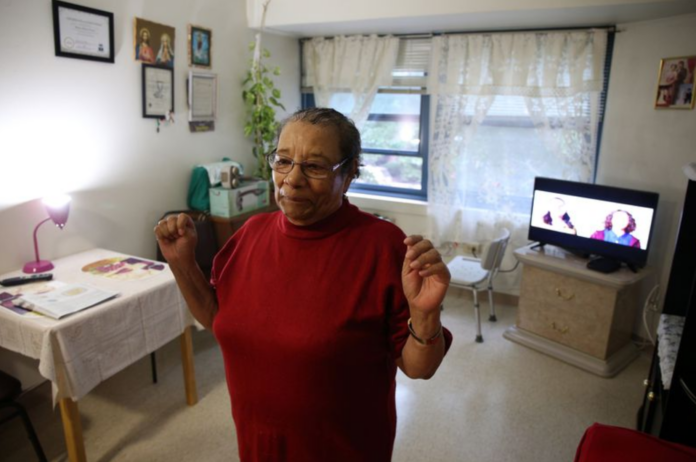
By Debbie Swanson | May 8, 2018
Finding assisted living or nursing care for a parent is never easy. The situation is further complicated when the individual in question is not fluent in English because he or she either never became totally versed in the language or aging has introduced difficulties.
“Patients with dementia often revert to their mother language,” explains Dr. Ivan Merkelj, medical director for Palm Beach PACE at MorseLife Health Systems. “The part of the brain that stores a learned language is different than the mother language, and they feel more comfortable with their mother language.”
According to Justice in Aging, approximately 5 million older Americans are limited English proficient (LEP), meaning they do not speak English as their primary language or they have a limited ability to read, speak, write, or understand it.
Many have lived independently for decades, relying on the proximity of family or friends or residing in a culturally dominant community. But when moved to a residential care facility, access to others who understand their language can become a challenge.
Food was another problem; the menu was unlike what his grandmother had been eating all her life, so family members did their best to bring in familiar meals.
Language accommodations are really just one element. Comfort with the menu, ability to join in activities and simply having someone to converse with all combine to help your loved adapt to their new community.
For example, in his facility in southern Florida, Merkelj says a large percentage of the residents are Hispanic or Creole.
“In our recruitment process, we try to balance staff members who are bilingual. We also try to integrate culture into activities, not only with conversation but in activities such as movies, music, dancing,” he says, adding that they see a favorable response.
It is clear that finding appropriate housing for parents is a heavy concern for most children. This article helps bring in the perspective of those who now also don’t speak English as their primary language. Even in the best of circumstances this is a difficult position to be in. With the Covid-19 pandemic, children of parents in assisted living are no longer able to either advocate for their parents who may struggle to communicate, they can’t bring familiar meals to share with their loved ones, or validate that the care being given is fair and proper.
In a time of increased anxiety and confusion, seniors who need the help of a translator that they may or nay not have are likely to feel these effects to a much higher degree. Whether the senior has already been transitioned to a living facility or not, normal social events have been removed or altered which adds another layer of isolation. Furthermore, this senior might have a limited knowledge or access to technology that connects them with their family. These problems should clearly illustrate the complex problem that these seniors who don’t speak English as their primary language are living.
Seniors who communicate in the same language as the care staff already have a hard time stating their needs or asking for help, especially with the presence of cognitive impairments. These seniors and their family must feel an increased sense of fear. Even if family members remove their loved one from assisted care, there is a concern that proper care won’t be administered. Overall, it is clear that seniors who don’t speak English as their primary language are put at an unfair disadvantage.
Source: https://www.nextavenue.org/mom-doesnt-speak-english/



